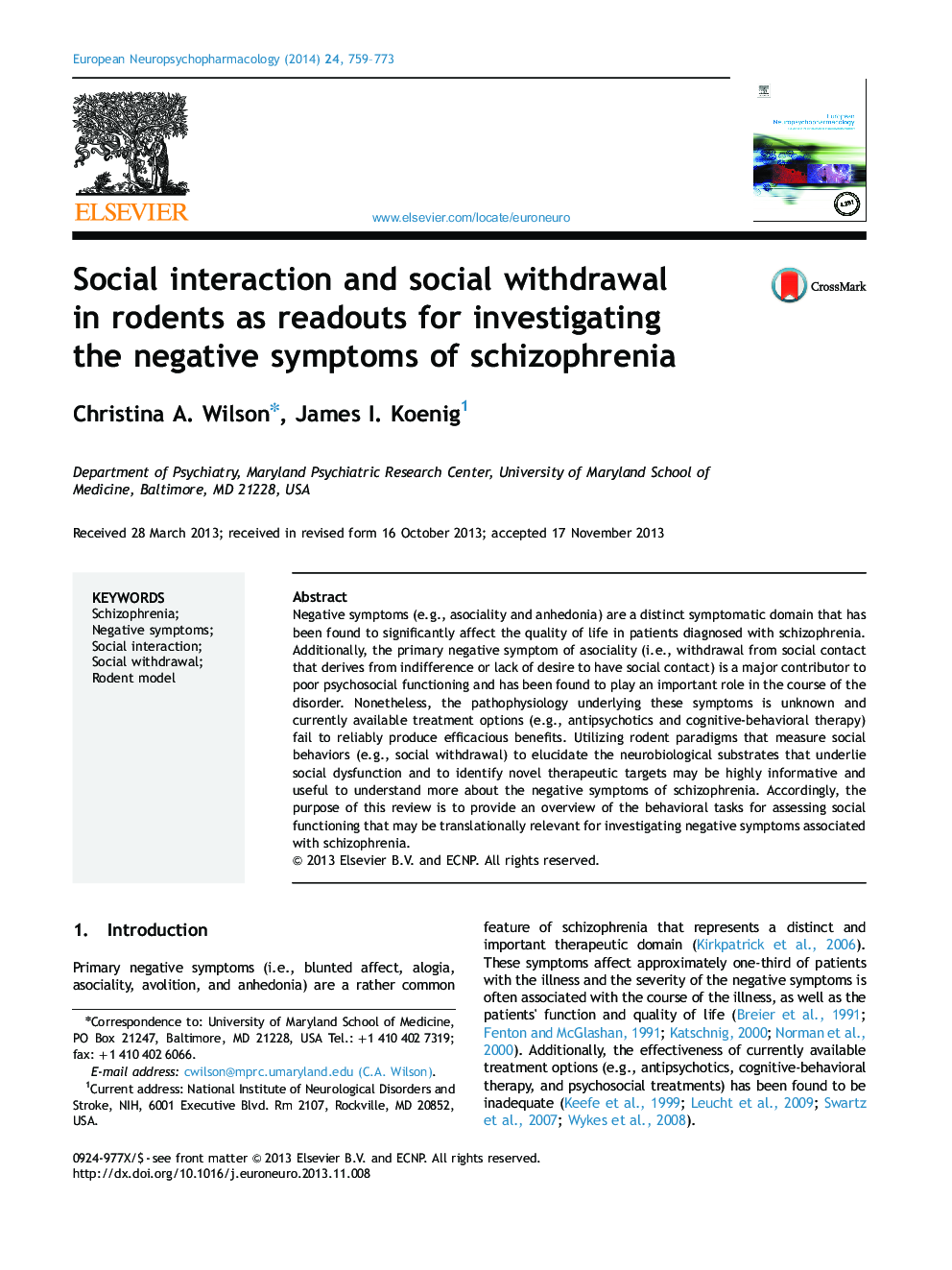| Article ID | Journal | Published Year | Pages | File Type |
|---|---|---|---|---|
| 10299017 | European Neuropsychopharmacology | 2014 | 15 Pages |
Abstract
Negative symptoms (e.g., asociality and anhedonia) are a distinct symptomatic domain that has been found to significantly affect the quality of life in patients diagnosed with schizophrenia. Additionally, the primary negative symptom of asociality (i.e., withdrawal from social contact that derives from indifference or lack of desire to have social contact) is a major contributor to poor psychosocial functioning and has been found to play an important role in the course of the disorder. Nonetheless, the pathophysiology underlying these symptoms is unknown and currently available treatment options (e.g., antipsychotics and cognitive-behavioral therapy) fail to reliably produce efficacious benefits. Utilizing rodent paradigms that measure social behaviors (e.g., social withdrawal) to elucidate the neurobiological substrates that underlie social dysfunction and to identify novel therapeutic targets may be highly informative and useful to understand more about the negative symptoms of schizophrenia. Accordingly, the purpose of this review is to provide an overview of the behavioral tasks for assessing social functioning that may be translationally relevant for investigating negative symptoms associated with schizophrenia.
Related Topics
Life Sciences
Neuroscience
Biological Psychiatry
Authors
Christina A. Wilson, James I. Koenig,
